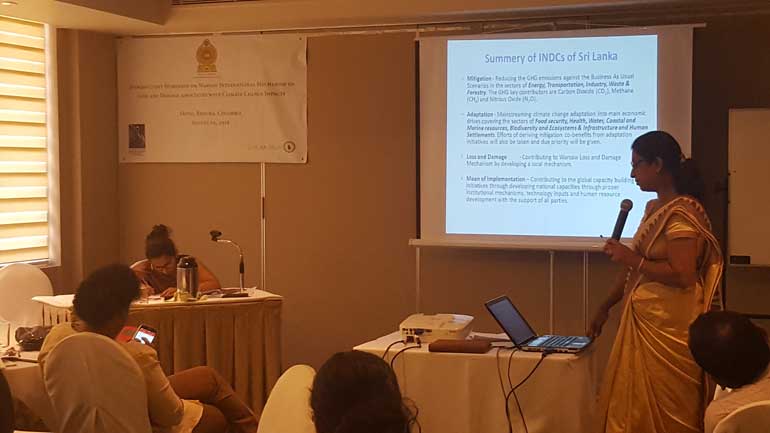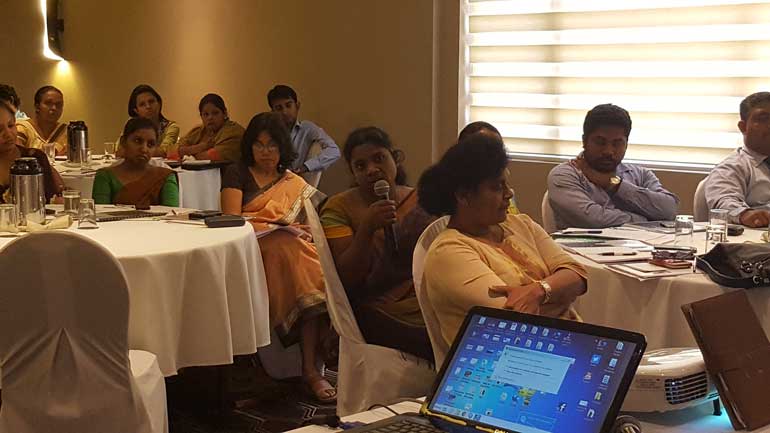Tuesday May 14, 2024
Tuesday May 14, 2024
Saturday, 6 August 2016 00:00 - - {{hitsCtrl.values.hits}}



The Ministry of Mahaweli Development and Environment in collaboration with SLYCAN Trust organised an introductory workshop to address the ‘Warsaw International Mechanism on Loss and Damage Associated with Climate Change Impacts’ on 1 August in Colombo.
The workshop was organised with the intention of exchanging information and knowledge on the Warsaw International Mechanism on loss and damage associated with climate change impacts and its implementation mechanism and was attended by policymakers, relevant government ministerial officials, civil society actors, media and researchers.
The Ministry of Mahaweli Development and Environment is the National Focal Point to the United Nations Framework Convention on Climate Change (UNFCCC) and Kyoto Protocol. During the 19th session of the Conference of Parties (COP19) to the UNFCCC, the Warsaw International Mechanism on Loss and Damage was established in Warsaw, Poland.
“This workshop is a timely intervention especially for low emitting countries like Sri Lanka as global efforts to address loss and damage due to climate change is largely and rapidly falling short. While there is hope with the introduction of loss and damage in the Paris Agreement, it must also be stated that Sri Lanka has included in its Intended Nationally Determined Contributions (INDCs) submission as well,” said Climate Change Secretariat Director Dr. Sunimal Jayathunga.
The workshop also becomes important when understanding the context and nature of the recent flood and landslides caused by irregular monsoons and extreme weather patterns.
Further, the 21st session of the Conference of Parties (COP 21) in 2015, held in Paris, France, recognised the importance of averting, minimising and addressing loss and damage associated with the adverse effects of climate change, including extreme weather events and slow onset events, and the role of sustainable development in reducing the risk of loss and damage.
“It’s encouraging to know that In COP21, while loss and damage was only recognised as a separate element in the agreement, in COP22 in Marrakech, there is to be a 5-year plan on how to go ahead with loss and damage as well,” said SLYCAN Trust Policy Co-ordinator Vositha Wijenayake. She is also the Advocacy and Policy Co-ordinator for Climate Action Network South Asia, a coalition of over 147 civil society organisations in the region committed to bridge the gap between policies and practice among policymakers and civil society.
The Warsaw International Mechanism on Loss and Damage is the main architecture developed under the UNFCCC to address loss and damage associated with climate change impacts in developing countries that are particularly vulnerable, in a comprehensive, integrated and coherent manner.
SLYCAN Trust is driven by the vision of collective local and global efforts to address impacts of climate change, animal welfare, social and gender empowerment and agriculture.